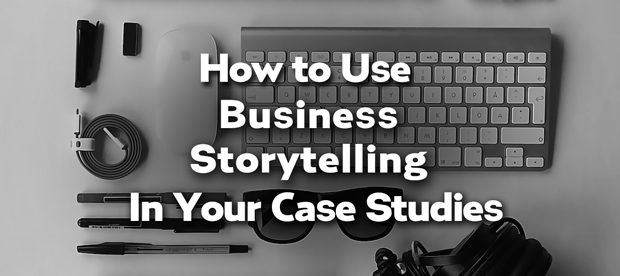Business storytelling is one of the best online marketing tools you can use to set yourself apart from your competitors and drive sales. As the concept of passing tales along to others has been around for centuries, it’s actually pretty easy to implement strong storytelling strategies as part of your inbound marketing approach. While the format may be different from painting on cave walls and writing on scrolls, the fundamentals of storytelling are the same. Here are a few tips to get started.
There are a few reasons your business needs storytelling. Effective storytelling gives you a competitive advantage no matter where your prospects are in the sales funnel. The right story is relatable to your target audience, drawing their attention and captivating them. A memorable tale will help you connect with your potential customers, which gets you one step closer to getting them to your landing page or converting a sale.
Getting started with business storytelling is easy. The irony is that you may already be doing it without knowing it. A case study is essentially a story that tells your target audience how you’ve solved business pain for another customer, while a product demonstration is a tale about how something works. When you see that almost any type of content offers opportunities to provide business storytelling, you just need to adjust your voice and approach.
It’s essential to connect with your target audience. Before you start to spin your tale, you need to know who you want to reach. You’re not going to appeal to every person in your CRM, all of your social media followers or anyone who finds your blog content. Therefore, isolate a particular target audience and consider what topics, content types and tone will resonate with them the most. This connection is central to effective business storytelling.
Don’t forget the storytelling essentials. You’ll need a character that your target audience can relate to, so you might draw from your buyer personas or other sources as you develop your story. Other basics you need to include are the same as those from books you’ve enjoyed since you were young: an engaging beginning, an ending that brings closure, and some peaks and valleys in between.
Use business storytelling in various types of content. You have so many options to choose from when deciding how you want to deliver your company’s stories. Relate your company history by telling a story about its origins and developments over time. On your sales information page, talk about your ideal customer and the problems you help them solve. The possibilities are endless, so have fun with business storytelling.
So the advantages of business storytelling are clear; it’s easy to roll out an approach and it’s cheap to create. What other reasons do you need to bring this tactic into your online marketing fold? The important point to remember, no matter what tales you want to relate, is that you must always keep your target audience in mind. If your story doesn’t elicit an emotional response or otherwise resonate with them, you’re not taking proper advantage of this essential tool.
